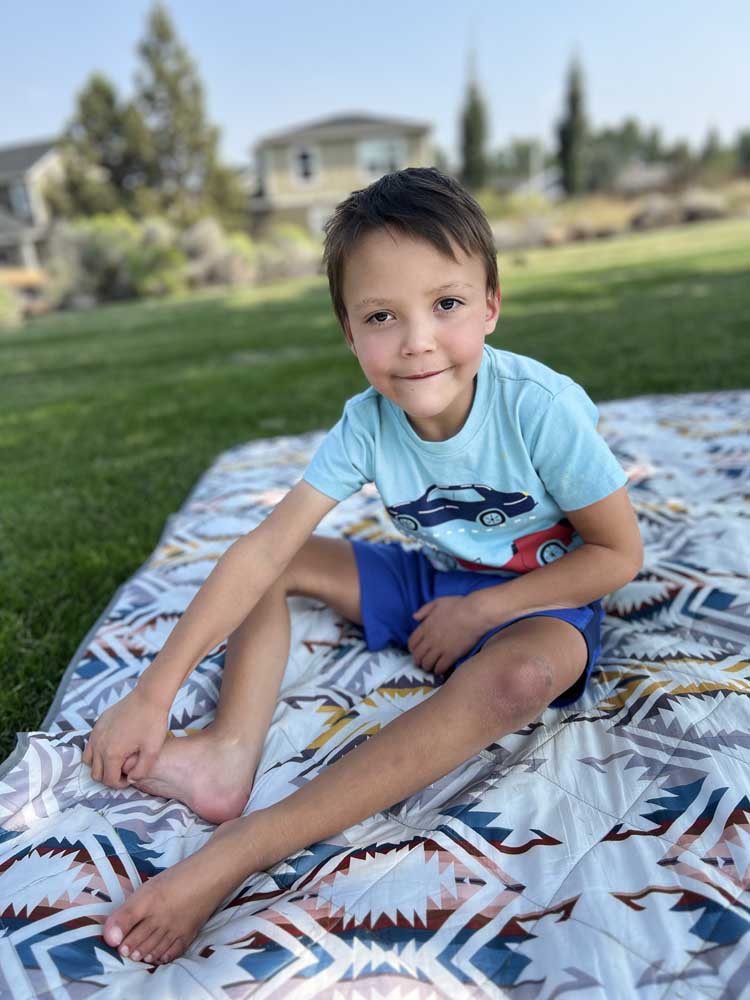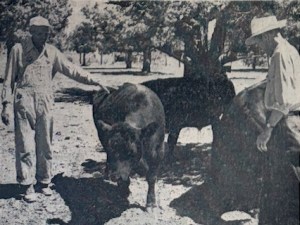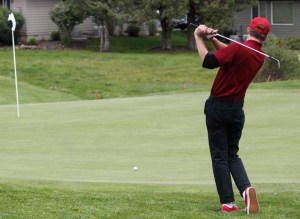Fundraiser helps Redmond boy who suffers from rare genetic disorder
Published 4:30 am Thursday, June 20, 2024

- Thatcher Miranda
Fundraiser helps Redmond boy who suffers from rare genetic disorder
Trending
{child_byline}By TIM TRAINOR
Redmond Spokesman{/child_byline}
For the first five years of his life, Thatcher Miranda never slept through the night. And he never stopped crying.
Trending
“It was like having a colicky baby for five whole years,” recalled Thatcher’s mother, Nicole. “He cried nonstop.”
Because Thatcher couldn’t communicate, his parents didn’t know how to help him. Doctors didn’t know either.
Nicole and Nicholas Miranda brought Thatcher, then just a toddler, to numerous specialists. No one could figure out what was wrong with their son. Doctors thought Thatcher could have autism, cerebral palsy, or some unknown genetic abnormality. But test after test, surgery after surgery, failed to find a root cause. The mystery deepened and Thatcher never stopped crying.
To care for him, Nicole quit her job as an elementary school teacher in Redmond. Nicholas upped his hours at his construction business, Miranda Stone Works. But home life was difficult.
“(Thatcher) had so many problems,” said Nicole. “He had daily seizures, had a feeding tube placed. He was on a real downward trajectory.”
Nicole couldn’t help but feel resentful of former coworkers who could spend the weekend watching Netflix or taking their kids for a carefree day at the park. She was parked at the computer every night, researching rare diseases and genetic abnormalities — trying to find anything that could ease Thatcher’s constant pain.
“Not knowing what’s wrong with my son was not good enough for me and not good enough for Thatcher,” she said.
One day she came across something that seemed to match his symptoms: Rhizomelic chondrodysplasia punctata, or RCDP. RCDP is an extremely rare genetic disorder that causes a person to be unable to produce necessary chemicals called plasmalogens.
Nicole’s hunch turned out to be right — doctors had missed the abnormality on previous genetic tests. Thatcher suffered from RCDP.
For someone with that disorder, the average life expectancy is just five years. And it took Nicole and doctors five years just to diagnose it.
“It’s a fatal condition,” said Nicole. “Kids typically die that young. (Getting the diagnosis) was both a huge relief and a lot of sadness.”
Plasmalogens are not well understood, but are now believed to be chemical components that concentrate in the brain, heart and lungs to help cells perform critical functions. Without them, people suffer brain and heart defects, seizures, eye problems, respiratory issues and more.
But identifying the problem made a major difference for Thatcher. Researchers were immediately interested in his case, flying to Redmond from Southern California to try experimental treatments.
For years, neuroscientists and organic chemists had been working to develop lab-made plasmalogens that mimic our natural substances. Doctors have studied the possible correlation between those chemicals and Alzheimer’s disease and dementia. With Thatcher, they could study the real world impact that lab-made plasmalogens could have.
“In the end, I feel like Thatcher’s purpose in life is a lot bigger than everybody realized,” said Nicole.
The effects of daily dose plasmalogens have been extraordinary. For 18 months, Thatcher has been drinking the lab-made chemicals — mixed in with olive oil — each day. He is now 7 years old, two years older than the normal life expectancy for someone with RCDP.
“He’s a long-term survivor,” said Nicole.
Though the lack of plasmalogens for the first years of his life caused brain and musculoskeletal damage, Thatcher’s life has changed completely since taking them. He stopped crying and started sleeping through the night. He became happier and healthier. He now laughs and runs and plays with his siblings. His body is no longer a constant source of discomfort, and Nicole said Thatcher has found his personality and his joys.
He has grown more affectionate, hugging and kissing his parents. Thatcher plays Nerf basketball with his older brother and loves the wheelchair ramp that lowers down from the school bus and takes him to Tom McCall Elementary during the school year.
“He’s a happy kid,” said Nicole. “His favorite thing is being outside, watching cars go by in his stroller.”
Thatcher’s improved health has been wonderful for the Mirandas’ quality of life, but the financial and physical demands of caring for a child with special needs has impacted the family.
As Thatcher has grown, it has become harder for his parents to lift him from his wheelchair to the car. Recently, Nicole lost her footing while trying to do just that and fell onto the driveway with Thatcher, causing him to hit his head.
“It was scary and dangerous,” said Nicole. “He’s getting so big.”
The family needs a wheelchair-equipped minivan to transport Thatcher safely, but those specialized vehicles come at a cost. Most start at about $60,000 and can get much pricier.
To help the family purchase the vehicle, the Redmond restaurant Oishi is directing all of its sales on July 3 to the Mirandas. A contribution jar will be left on the counter for people who want to donate and a silent auction is already underway at the restaurant. A motorcycle, a diamond necklace and many gift certificates have been donated to the cause by local businesses and organizations.
Just having the ability to think about Thatcher’s future, and knowing how to keep him safe and happy, has been wonderful for Nicole.
“Our biggest hope for Thatcher is that he lives a happy life as healthy as he can be,” she said. “There were many years when he cried in pain all day. His quality of life was so bad. I hope he keeps making progress and gets the most out of life.”
{child_tagline}
Reporter: 541-548-3203, ttrainor@redmondspokesman.com
{/child_tagline}








